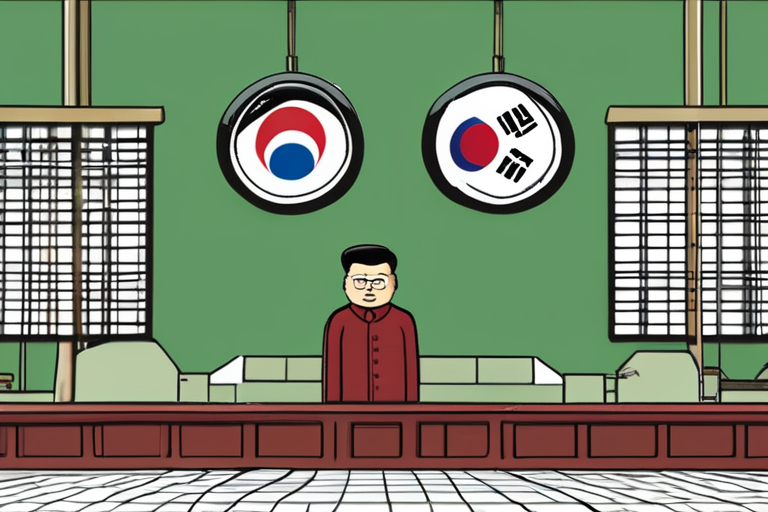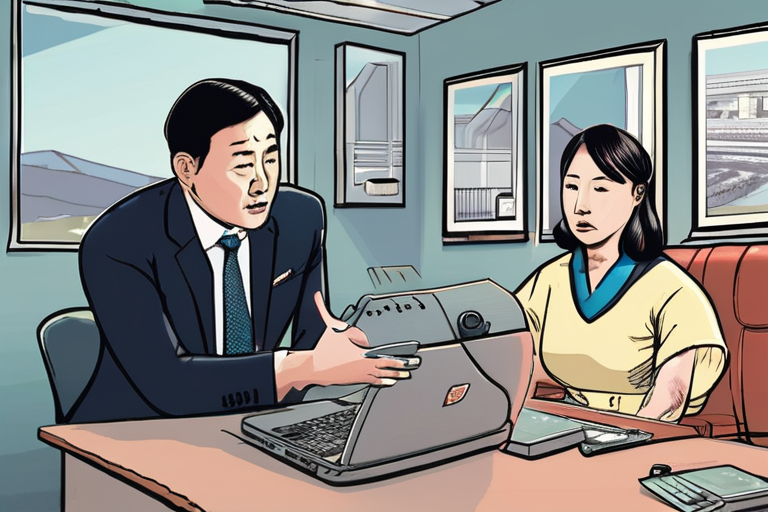South Korea Unable to Pay $350 Billion Under Trade Pact
SEOUL, South Korea - In a significant development that has sparked concerns about the country's economic stability, South Korean officials have confirmed that they are unable to provide the United States with $350 billion in cash as agreed upon under a trade deal.
According to National Security Adviser Wi Sung-lac, who made the statement on Channel A News television on Saturday evening, "Our position is not a negotiating tactic. It is objectively and realistically not a level we are able to handle." He emphasized that South Korea cannot afford to pay such a large sum in cash, which represents more than 80% of its foreign reserves.
The $350 billion investment pledge was part of a broader trade deal agreed upon by Seoul and Washington in July. The deal aimed to lower US tariffs on South Korean goods from 25% to 15%. However, the two sides remain divided over how the investment should be structured.
South Korean officials are seeking alternative arrangements with the US, including loans and a bilateral currency swap arrangement, to mitigate the economic impact of the agreement. "We are not able to pay $350 billion in cash," Wi Sung-lac reiterated.
The inability of South Korea to meet its obligations under the trade deal has raised concerns about the country's economic stability and its ability to manage its foreign reserves. The market reaction has been muted, with the Korean won (KRW) experiencing a slight decline against the US dollar.
Market analysts point out that the $350 billion investment pledge was always seen as an ambitious target, given South Korea's economic constraints. "This is not entirely unexpected," said one analyst. "South Korea's economy is heavily dependent on exports, and the country has been struggling to maintain its foreign reserves in recent years."
The current impasse between Seoul and Washington highlights the challenges of implementing large-scale trade deals. While the agreement aims to lower tariffs and increase investment, it also raises concerns about the economic sustainability of such arrangements.
As negotiations continue, South Korean officials are urging caution, emphasizing that the country's position is not a negotiating tactic but a realistic assessment of its financial capabilities. "We are committed to finding a solution that works for both countries," said Wi Sung-lac.
The next development in this saga will likely come from Washington, where US Commerce Secretary Howard Lutnick has reportedly been seeking clarification on South Korea's ability to meet its obligations under the trade deal. The outcome of these negotiations will have significant implications for the global economy and the future of trade agreements between major economies.
Background
The $350 billion investment pledge was part of a broader trade deal agreed upon by Seoul and Washington in July. The deal aimed to lower US tariffs on South Korean goods from 25% to 15%. However, the two sides remain divided over how the investment should be structured.
Additional Perspectives
Market analysts point out that the $350 billion investment pledge was always seen as an ambitious target, given South Korea's economic constraints. "This is not entirely unexpected," said one analyst. "South Korea's economy is heavily dependent on exports, and the country has been struggling to maintain its foreign reserves in recent years."
Current Status
The current impasse between Seoul and Washington highlights the challenges of implementing large-scale trade deals. While the agreement aims to lower tariffs and increase investment, it also raises concerns about the economic sustainability of such arrangements.
As negotiations continue, South Korean officials are urging caution, emphasizing that the country's position is not a negotiating tactic but a realistic assessment of its financial capabilities. "We are committed to finding a solution that works for both countries," said Wi Sung-lac.
The next development in this saga will likely come from Washington, where US Commerce Secretary Howard Lutnick has reportedly been seeking clarification on South Korea's ability to meet its obligations under the trade deal. The outcome of these negotiations will have significant implications for the global economy and the future of trade agreements between major economies.
*Reporting by Fortune.*



 Hoppi
Hoppi

 Hoppi
Hoppi

 Hoppi
Hoppi

 Hoppi
Hoppi

 Hoppi
Hoppi

 Hoppi
Hoppi











